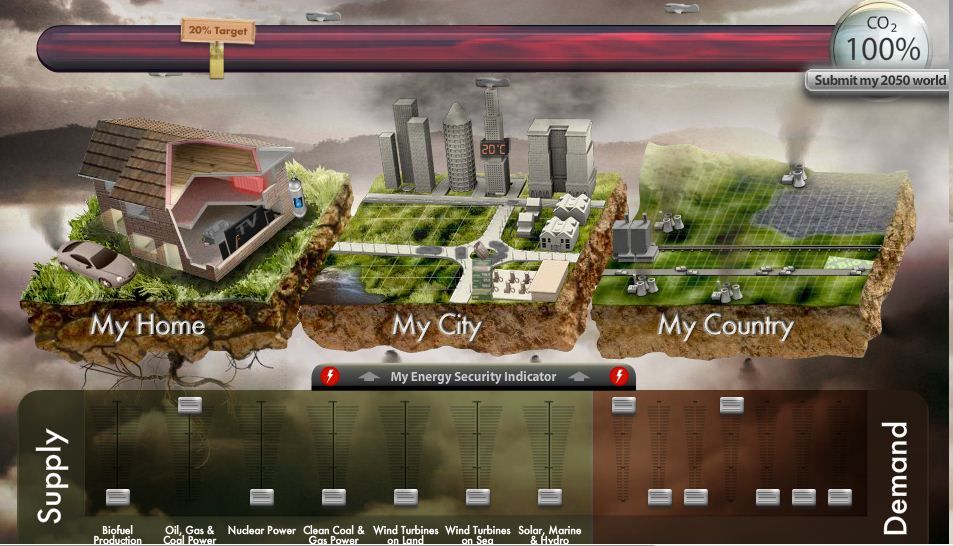Public Values, Attitudes and Acceptability
 Energy system change bears upon multiple long-term national policy goals, including low carbon transitions, energy security and affordability, and mitigating wider environmental impacts. Significant transformations in the way the UK supplies, manages and consumes its energy will be essential if these aims are to be attained. Public values, attitudes and acceptability are of high importance in processes of whole energy systems transformation and could present significant difficulties, as well as opportunities, for the delivery of change across multiple areas. The proposed research, using an interdisciplinary (psychology, sociology, science and technology studies, human geography, engineering and architecture) and multi-method approach (qualitative interviews, public deliberative workshops, decision pathway surveys), will contribute to current knowledge, theory, methodology and policy by developing insights into public perspectives on whole energy system changes as an integrated set of transformations that will be experienced, enacted and negotiated in everyday lives. Specific objectives of the research are:
Energy system change bears upon multiple long-term national policy goals, including low carbon transitions, energy security and affordability, and mitigating wider environmental impacts. Significant transformations in the way the UK supplies, manages and consumes its energy will be essential if these aims are to be attained. Public values, attitudes and acceptability are of high importance in processes of whole energy systems transformation and could present significant difficulties, as well as opportunities, for the delivery of change across multiple areas. The proposed research, using an interdisciplinary (psychology, sociology, science and technology studies, human geography, engineering and architecture) and multi-method approach (qualitative interviews, public deliberative workshops, decision pathway surveys), will contribute to current knowledge, theory, methodology and policy by developing insights into public perspectives on whole energy system changes as an integrated set of transformations that will be experienced, enacted and negotiated in everyday lives. Specific objectives of the research are:
- To identify the degrees of public acceptability with regard to trade-offs inherent in whole energy system transformation, with a view to informing the policy-making process and providing research evidence for developing future energy scenarios
- To build knowledge and understanding of public attitudes, values and acceptability in order to support development of sustainable transitions in the energy sector
- To create qualitative and quantitative data sets for examination of the perspectives of varied publics across the UK on whole energy system transitions, including consensus and disagreement over normative framings underlying proposed energy system transformation
- To develop and utilise innovative methodological approaches for examining public values, attitudes and acceptability combining both in-depth exploratory (qualitative) and generalisable (quantitative) approaches
- To develop a range of generic materials that can be utilised as a basis for working with varied publics to examine their perspectives toward whole system transformation drawing upon existing scenarios and imaginings of future energy systems.





 Energy system change bears upon multiple long-term national policy goals, including low carbon transitions, energy security and affordability, and mitigating wider environmental impacts. Significant transformations in the way the UK supplies, manages and consumes its energy will be essential if these aims are to be attained. Public values, attitudes and acceptability are of high importance in processes of whole energy systems transformation and could present significant difficulties, as well as opportunities, for the delivery of change across multiple areas. The proposed research, using an interdisciplinary (psychology, sociology, science and technology studies, human geography, engineering and architecture) and multi-method approach (qualitative interviews, public deliberative workshops, decision pathway surveys), will contribute to current knowledge, theory, methodology and policy by developing insights into public perspectives on whole energy system changes as an integrated set of transformations that will be experienced, enacted and negotiated in everyday lives. Specific objectives of the research are:
Energy system change bears upon multiple long-term national policy goals, including low carbon transitions, energy security and affordability, and mitigating wider environmental impacts. Significant transformations in the way the UK supplies, manages and consumes its energy will be essential if these aims are to be attained. Public values, attitudes and acceptability are of high importance in processes of whole energy systems transformation and could present significant difficulties, as well as opportunities, for the delivery of change across multiple areas. The proposed research, using an interdisciplinary (psychology, sociology, science and technology studies, human geography, engineering and architecture) and multi-method approach (qualitative interviews, public deliberative workshops, decision pathway surveys), will contribute to current knowledge, theory, methodology and policy by developing insights into public perspectives on whole energy system changes as an integrated set of transformations that will be experienced, enacted and negotiated in everyday lives. Specific objectives of the research are:







